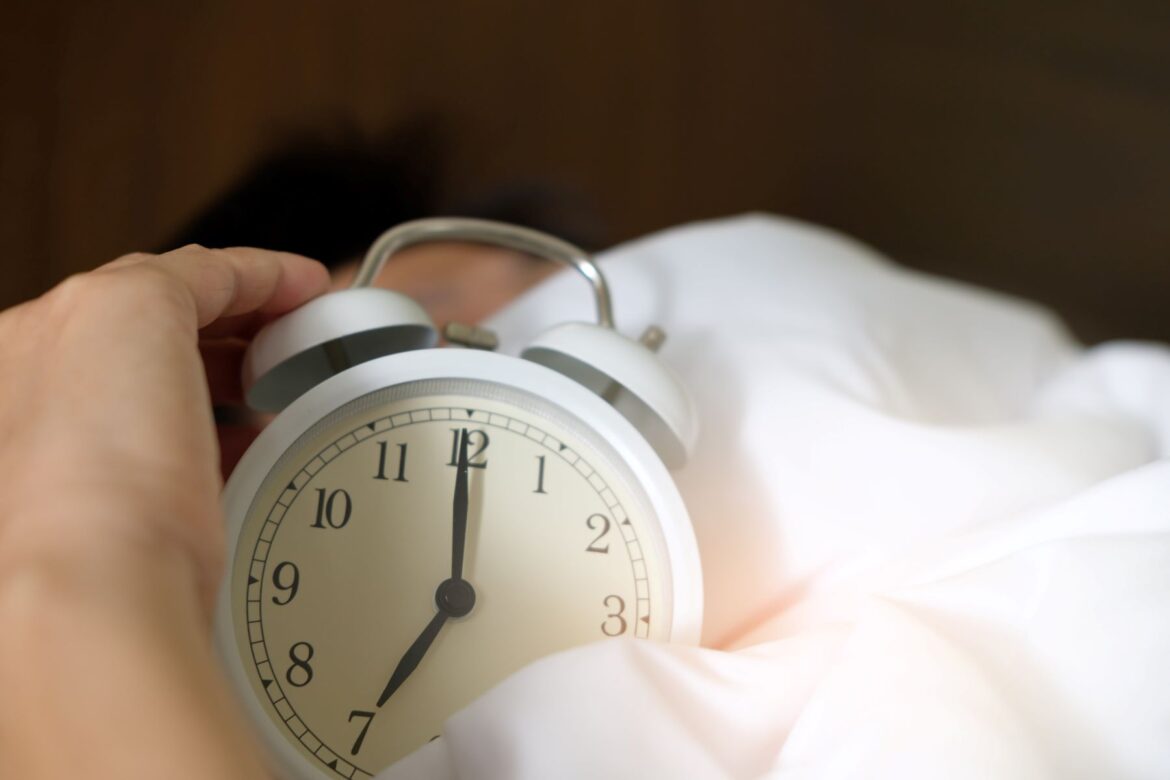By Karen Morris
What is the impact of lack of sleep and insomnia on your brain health?
There are times when we all struggle to get enough sleep. We have a lot going on in our lives and many are feeling the pinch of rising costs at the moment.
So, it’s easy for our brains to keep us awake at night with the constant stressors we are dealing with on a daily basis.
And you might think it’s normal to wake frequently and struggle to get back to sleep.
But it’s not normal and it’s actually quite detrimental to your health.
What are the impacts of long-term lack of sleep?
- Cognitive Function: Chronic sleep deprivation can impair cognitive function, affecting memory, attention, and decision-making. It’s like trying to operate on half your mental capacity and makes daily thinking and tasks way more challenging.
- Increased Risk of Dementia: Studies suggest a link between inadequate sleep and a higher risk of developing dementia. During sleep, the brain clears out toxins that accumulate throughout the day. Without sufficient sleep, this cleansing process may be compromised, potentially contributing to cognitive decline.
- Mood Disturbances: Lack of sleep can exacerbate mood disorders, leading to increased irritability, anxiety and even depression. A well-rested mind is better equipped to handle stress and regulate emotions.
- Weakened immune system: Regular sleep disturbances weaken the immune system, making you more susceptible to infections. Quality sleep is essential for the body to repair and regenerate, contributing to overall health and well-being.
If you are not getting enough sleep, if you struggle to get to sleep and stay asleep it may mean that you need to create some better sleep habits as well as get some Naturopathic assistance.
Here’s what you can do:
- Establish a Consistent Routine: Going to bed and waking up at the same time every day may seem like a chore, but it helps to regulate your body’s internal clock.
- Create a Relaxing Bedtime Ritual: Spend at least an hour or two before bed developing calming pre-sleep activities, such as practising gentle yoga, reading a book, or engaging in mindfulness meditation. This helps to signal to the body that it’s time to wind down.
- Optimise your Sleep Environment: Make your bedroom a sleep-friendly space. Keep it dark and cool and quiet (no TVs or other devices). Investing in a quality mattress and pillows can make all the difference to your comfort.
- Limit Stimulants Before Bed: Reduce or eliminate stimulants such as caffeine and sugar at least 6 hours before bed. These substances can interfere with your ability to fall asleep and stay asleep.
- Incorporate Relaxation Techniques: Practicing techniques such as deep breathing, progressive muscle relaxation and guided imagery. If you struggle with these techniques on your own, try an app such as Headspace or Insight Timer, which offer a plethora of relaxation techniques and meditation. These practices help calm the mind and prepare the body for a restful sleep.
At Herbs Online Shop, we value the importance of your sleep, and we understand that it takes time to develop good sleep habits and to remain consistent.
That’s why we’ve developed sleep formulas to help you on your sleep journey.
Sleep Forte is our best-selling sleep formula. It helps you get to sleep and stay asleep longer. And if you happen to wake up, you might find that you get back to sleep a lot faster too. It’s made with a blend of kava, skullcap, ziziphus and valerian, all of which help to calm the nerves, promote relaxation and help with anxiety.
Sleep and Insomnia herbal drops are for you if you are suffering from adrenal stress and fatigue. Made with California poppy, Passionflower, Hops, Oats, Lemon Balm, and Lavender, these herbs are designed for someone who has been under stress for a short or long period of time.
When this happens, adrenals become depleted. Common symptoms of adrenal fatigue are waking in the night, sometimes getting hot during the night, needing to put your feet out of the bed covers and feeling overwhelmed during the day.
This herbal may need to be taken for several weeks to allow the adrenals to become regenerated. While this regenerating is happening, this herbal can be accompanied with
Bach Rescue Sleep is traditionally used to relieve sleeplessness. Rescue Sleep is a natural sleep aid, that calms your restless mind providing natural relief from insomnia caused by stress and repetitive thoughts.
Ingredients: Rock Rose, Impatiens, Clematis, Star of Bethlehem and Cherry Plum, plus White Chestnut.
Directions for use: Put 4 drops directly on the tongue or add 4 drops to water and sip at intervals. Repeat as necessary.
Magnesium is vital for your well-being, including sleep. Taking a regular magnesium supplement helps your nervous system and helps to relieve stress and headaches. Magnesium citrate is easily absorbed and mixes well in water or other drinks.
Vitamin D is another essential vitamin and must actually be taken with your magnesium in order to be absorbed by the body. Vitamin D helps maintain a healthy immune system, as well as supporting your muscles and bones.
Developing a better sleep cycle is a gradual process that requires patience, commitment and care. Small consistent changes in daily routines can lead to significant improvements in both the quantity and quality of your sleep, contributing to your overall brain health and well-being.
Our recommendations here a just a general guide so if you need more support, please do call us on (02) 9555 5117 or make an appointment online here: https://herbsonlineshop.com/product/60-minute-consultation-lifestyle-coaching-session/


